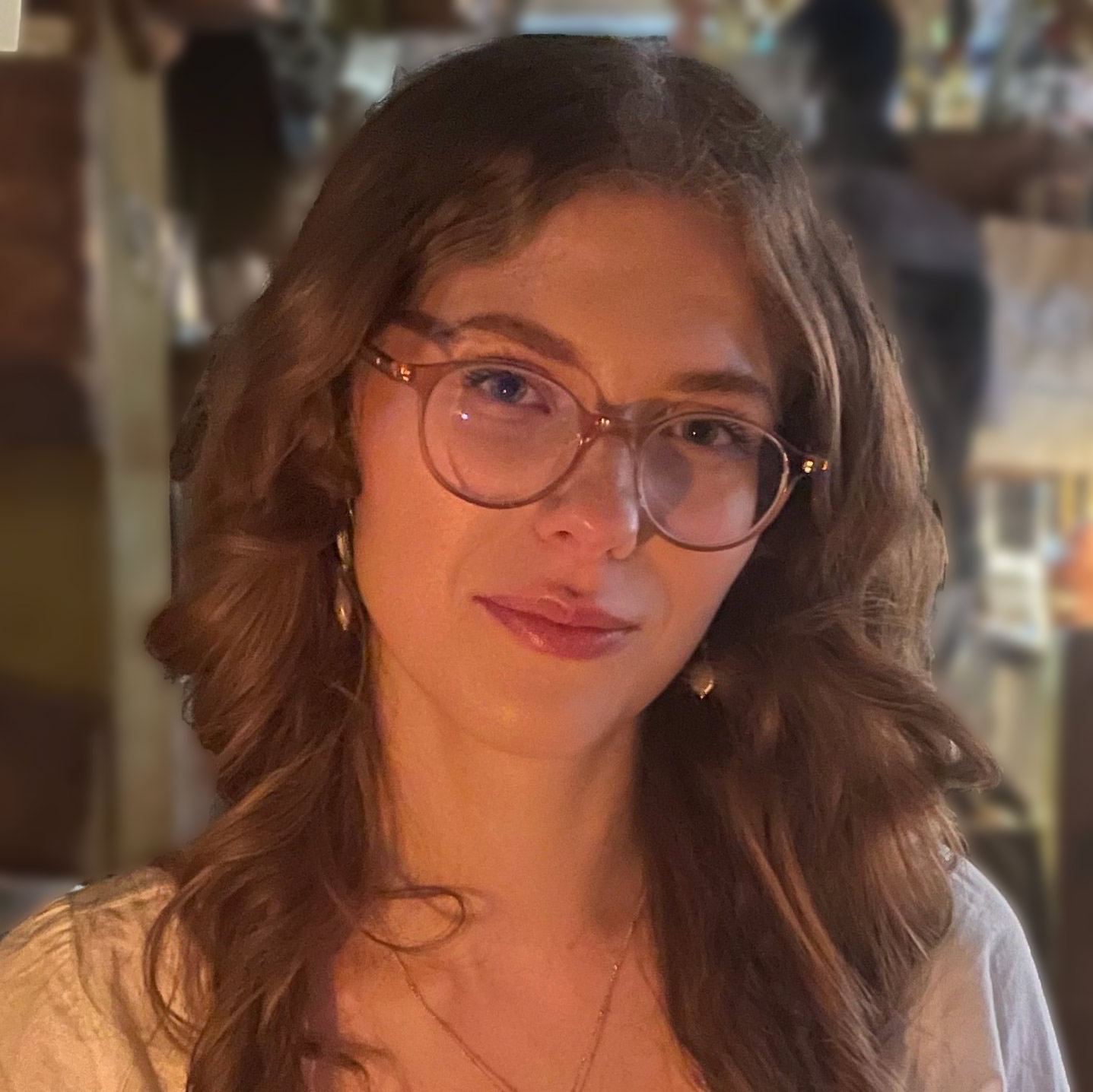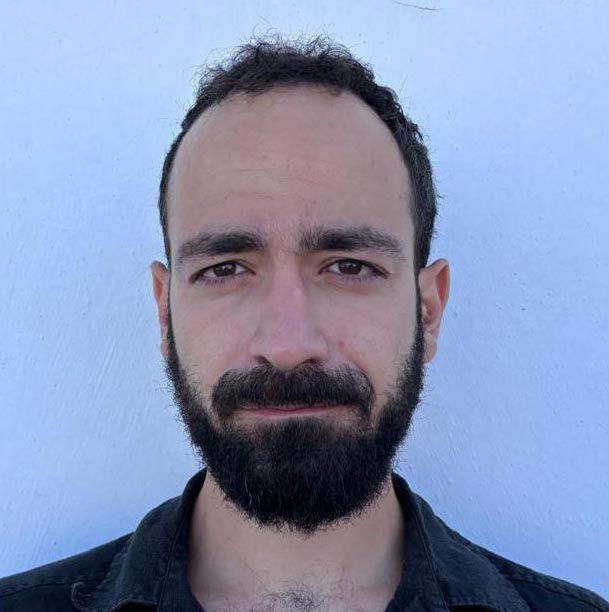Speaking Flesh
Mental Health, Literature, and the Poetics of the Body
4–part interactive online cpd series
Key Info
Literature,
Mental Health,
and the Body
Dr. Tanya Lecchi
Wed 15 OCT 2025
17.30 – 19.30 GMT
Live: Yes
Recorded: Yes
Recording £25
The Untold
History of
Eating Disorders
Helena C. Aeberli
Wed 29 OCT 2025
17.30 – 19.30 GMT
Live: Yes
Recorded: Yes
Recording £25
Gender,
Mental Illness,
and the Medical Gaze
Madhurima Sen
Wed 12 NOV 2025
17.30 – 19.30 GMT
Live: Yes
Recorded: Yes
Recording £25
The Cultural Afterlife of Hysteria: Medicine, Art, and Literature
Orestis Tzirtzilakis
Wed 26 NOV 2025
17.30 – 19.30 GMT
Live: Yes
Recorded: Yes
Recording £25
Overview
This 4-part webinar series explores how mental illness has been understood, represented, and experienced throughout history, with particular attention to the roles of gender, power, and culture. Drawing on historical case studies, literary texts, and visual culture, the series traces how medical knowledge has been constructed — and contested — over time.
From seventeenth-century notions of disordered appetite to the cultural afterlife of hysteria and the writings of women who challenged psychiatric authority, Speaking Flesh invites participants to critically examine how bodies have served as sites of medical scrutiny, metaphor, and resistance.
Across the series, we will explore how literature and historical perspectives on mental health reveal the complex relationships between mind, body, culture, and power, challenging dominant narratives and expanding our understanding of psychological suffering.
Dr Tanya Lecchi will lead the introductory session and chair the subsequent webinars, guiding critical dialogue on the clinical implications of these intersections and encouraging reflection on case material.
Seminar Content
PART 1 – Literature, Mental Health, and the Body
Speaker: Dr. Tanya Lecchi
As an introduction to the webinar series, Dr Tanya Lecchi will explore the often uneasy relationship between literature and psychoanalysis – two disciplines frequently assumed to share interpretive ground, yet whose encounters more often reveal disjunction than convergence. Rather than collapsing one into the service of the other, this session invites participants to consider how friction, rather than affinity, can become a generative site of inquiry – where the resistances, contradictions, and asymmetries between clinical thinking and literary form open up new ways of reading both text and psyche (Freer, 2019).
Psychoanalysis often seeks to restore meaning to symptoms by decoding the hidden logic behind them, treating the body as a site where unconscious conflict is made manifest and may be interpreted. By contrast, poetics celebrates the opacity and irreducibility of language, emphasising how meaning fractures and multiplies in the spaces between words. Rather than aiming for clarity and resolution, poetics embraces ambiguity, silence, and metaphor as forms of resistance to total interpretation.
The session will focus on how to cultivate a disruptive dialogue between literature and psychoanalysis, allowing their fundamental differences to illuminate how psychic pain is expressed when language fails. Here, the body is not simply a bearer of symptoms, but a poetic text – an enigmatic expression of desire, fear, and loss that resists full translation into discourse. Mary Shelley’s Frankenstein powerfully exemplifies this intersection. Through Victor Frankenstein, Shelley dramatises the limits of language and explores how repression, guilt, and the constraints of gendered emotional expression produce a fractured self. Victor’s pain is articulated through hysterical symptoms, revealing the embodied nature of mental distress and the difficulties of emotional expression shaped by cultural and gendered norms.
PART 2 – The Untold History of Eating Disorders
Speaker: Helena C. Aeberli
The government of this mighty Prince, Hunger, is (as other Empires) liable to great and dangerous disorders, sometimes too remiss and dissolute, sometimes corrupt, and sometimes tyrannic.
Walter Charleton, 1680.
Despite their conventional depiction as a modern phenomenon, eating disorders were a significant source of concern in early modern England. But what did ‘disordered eating’ mean in a seventeenth-century context? How and why were these disorders significant? And with what cultural meanings and anxieties did they become entangled? This first part of this webinar will explore two aspects of eating disorders: their rich metaphoric potential and their material presence in medical practice. Physicians across the century recognised and debated three distinct disorders: diminished, excessive, and depraved appetites. Meanwhile, an extensive print literature presented disordered appetites to a popular audience, often drawing on ideas about gender, morality, monstrosity, and the preservation of social order within the body politic.
Following Susan Bordo’s reassessment of anorexia nervosa as ‘the crystallisation of culture’, the second part of this webinar will suggest that eating disorders are at least partially culturally-constructed, and thus revealing about the wider psychosocial tensions of a particular time and place. Moreover, in drawing attention to what Susan Sontag famously termed ‘illness as metaphor’, it will argue that contemporary discourses of food, appetite, and eating disorders remain enmeshed in imagistic, moralistic, and often stigmatising language. Paying particular attention to concepts of gender and monstrosity, it will suggest the relevance for clinicians of examining the historical roots and cultural associations of disease concepts still in use today.
PART 3 – Gender, Mental Illness, and the Medical Gaze
Speaker: Madhurima Sen
Throughout history, women’s mental health has been subject to medical scrutiny that often reduced psychological suffering to pathology, hysteria, or hormonal imbalance. This session explores how literature offers a powerful space for rethinking mental health and how literary texts illuminate, and often resist, this medicalization by offering nuanced representations of mental distress.
The first part introduces key theoretical frameworks for understanding how women’s mental illness has been historically constructed, pathologized, and silenced. Drawing on Michel Foucault’s Madness and Civilization, we will examine how psychiatry and institutional medicine have functioned as systems of power and control. In parallel, we will engage with Sandra Gilbert and Susan Gubar’s The Madwoman in the Attic, which interrogates how the figure of the “madwoman” has been used to contain and distort female creativity in literature. Together, these perspectives set the stage for a deeper analysis of literary resistance to the medical gaze.
The second part will closely examine how selected works by women writers like Charlotte Perkins Gilman, Virginia Woolf, and Sylvia Plath represent the lived experience of mental distress in ways that challenge psychiatric authority. These historical and literary insights remain strikingly relevant to contemporary discussions of gender, power, and mental health. Through a study of selected excerpts, we will trace how literature critiques diagnostic labels, reclaims narrative agency, and exposes the gendered assumptions embedded in mental health discourse.
PART 4 – The Cultural Afterlife of Hysteria: Medicine, Art, and Literature
Speaker: Orestis Tzirtzilakis
In this live webinar, Orestis Tzirtzilakis explores how the 19th century neurological reading of hysteria was reappropriated by writers and artists. In focusing on the early work of Sigmund Freud, this session will trace the disorder in comparison with its later literary and visual manifestations.
In 1886, Sigmund Freud submitted a report on his studies in Paris, expressing admiration for the work on hysteria conducted by his mentor, Jean-Martin Charcot. Charcot’s work at the Salpêtrière Hospital became famous for turning hysteria into a public (and sexualized) spectacle: from his Tuesday lectures and media debates on hypnotic suggestion to its later reappropriation by Surrealists artist and early 20th century writers. However, following Charcot’s neurological work, Freud sought to demystify the condition by dissociating it from genital pathology—its name deriving from the ancient Greek word for the uterus (hystera)—and to reject its long-standing association with simulation and malingering.
In the first part of this live webinar, Orestis will examine Freud’s early thinking on hysteria, culminating in Studies on Hysteria (1895), co-authored with Josef Breuer. He will trace Freud’s references to the neurological history of the disorder and its subsequent translation into literature and visual culture of the 19th century and early 20th century.
In the second part, the discussion will broaden to explore the disorder’s afterlife in culture. Participants will reflect on their own gendered readings of hysteria and consider how artistic practices challenge the medical canon’s erasure of the condition, asking: does hysteria still haunt us today?
Who is this training for?
This webinar series is primarily designed for psychotherapists and mental health professionals seeking to deepen their understanding of the complex interplay between literature, mental health, and the body. It also welcomes scholars, students, and anyone with an interest in how cultural, historical, and gendered perspectives shape our experiences and representations of psychopathology.
By exploring literary and historical case studies alongside psychoanalytic and poetic approaches, this series offers valuable insights that can enrich clinical practice, encourage reflective thinking, and broaden the ways in which mental health and embodiment are understood.
Learning Objectives
PART 1
– To analyse how the body functions as a site for expressing psychological pain when conventional discourse fails.
– To identify how Mary Shelley’s Frankenstein dramatises the embodied nature of mental distress and the limitations of gendered emotional expression.
– To reflect on the broader implications of the body as a poetic and symbolic site of resistance in discussions of mental health.
PART 2
– To uncover the hidden history of eating disorders.
– To consider the role of language and metaphor in disease.
– To reflect on the relevance of historical research for clinicians working today.
PART 3
– To analyse the historical construction of women’s mental illness.
– To critically evaluate literary representations of mental distress in works by women writers.
– To examine the intersection of gender, power, and mental health in literature.
PART 4
– To discuss and debate how medical ideas are reinterpreted and performed within culture.
– To critically evaluate representations of hysteria in key literary and visual works.
Speakers

Dr. Tanya Lecchi
Tanya Lecchi is a psychologist and relational psychotherapist whose work bridges clinical practice, academic research, and interdisciplinary inquiry. She is dedicated to exploring psychological experience within complex relational, cultural, and developmental contexts.
Tanya is a course tutor on the Doctorate in Clinical Psychology (DClinPsy) programme at the University of Oxford and a Senior Research Fellow at the Child Attachment and Psychological Therapies Research Unit (ChAPTRe) at the Anna Freud Centre, affiliated with University College London (UCL).
Her research and teaching focus on attachment, developmental pathways, and therapeutic processes, cultivating reflective clinical practice informed by empirical rigour and relational depth.
Tanya’s academic interests also extend to the humanities, fostering a rich dialogue between psychology, literature, philosophy, and the arts. She is passionate about exploring how these fields inform and deepen understanding of the human condition and therapeutic practice.

Helena C. Aeberli
Helena C. Aeberli is a writer and researcher currently studying for a DPhil in History at the University of Oxford. Her DPhil explores diet, disease, and disordered eating in seventeenth-century medicine and culture. More broadly, she is interested in the intersections between medical and cultural imaginings of the body, as well as critical feminist approaches to body-management practices.
Helena holds a First Class BA in History and Politics and an MSt in Early Modern History from Jesus College Oxford, for which she was awarded the Best Dissertation in Cohort Prize. She also writes essays and criticism, which can be found on her website: https://www.helenaaeberli.co.uk/

Madhurima Sen
Madhurima Sen is a doctoral candidate at the Faculty of English, University of Oxford, specializing in the literary representation of trauma experienced by war survivors. She is a founding member and co-convenor of the Literature and Mental Health reading group at Oxford, a pioneering forum that investigates the complex intersections between mental health and literary form.
Madhurima has actively contributed to the university’s Medical Humanities initiatives, including organising an interdisciplinary workshop that fostered dialogue across literature, medicine, and mental health studies. She also brings extensive teaching experience, having designed and delivered courses on ‘Literature and the Mind’ at Mansfield College.

Orestis Tzirtzilakis
Orestis Tzirtzilakis is a fourth-year DPhil candidate in Medieval and Modern Languages at the University of Oxford. He studied Philosophy (BA at the University of Patras; MA at the University of Warwick) with a focus on Film and Media Studies and the History of Art. His research explores critical moments in which medical discourses of hysteria intersect with the performance and formation of modern Greek identity. He has collaborated with various institutions and collectives, fostering interdisciplinary research between artistic practice and academic inquiry, with a particular focus on the Medical Humanities.
